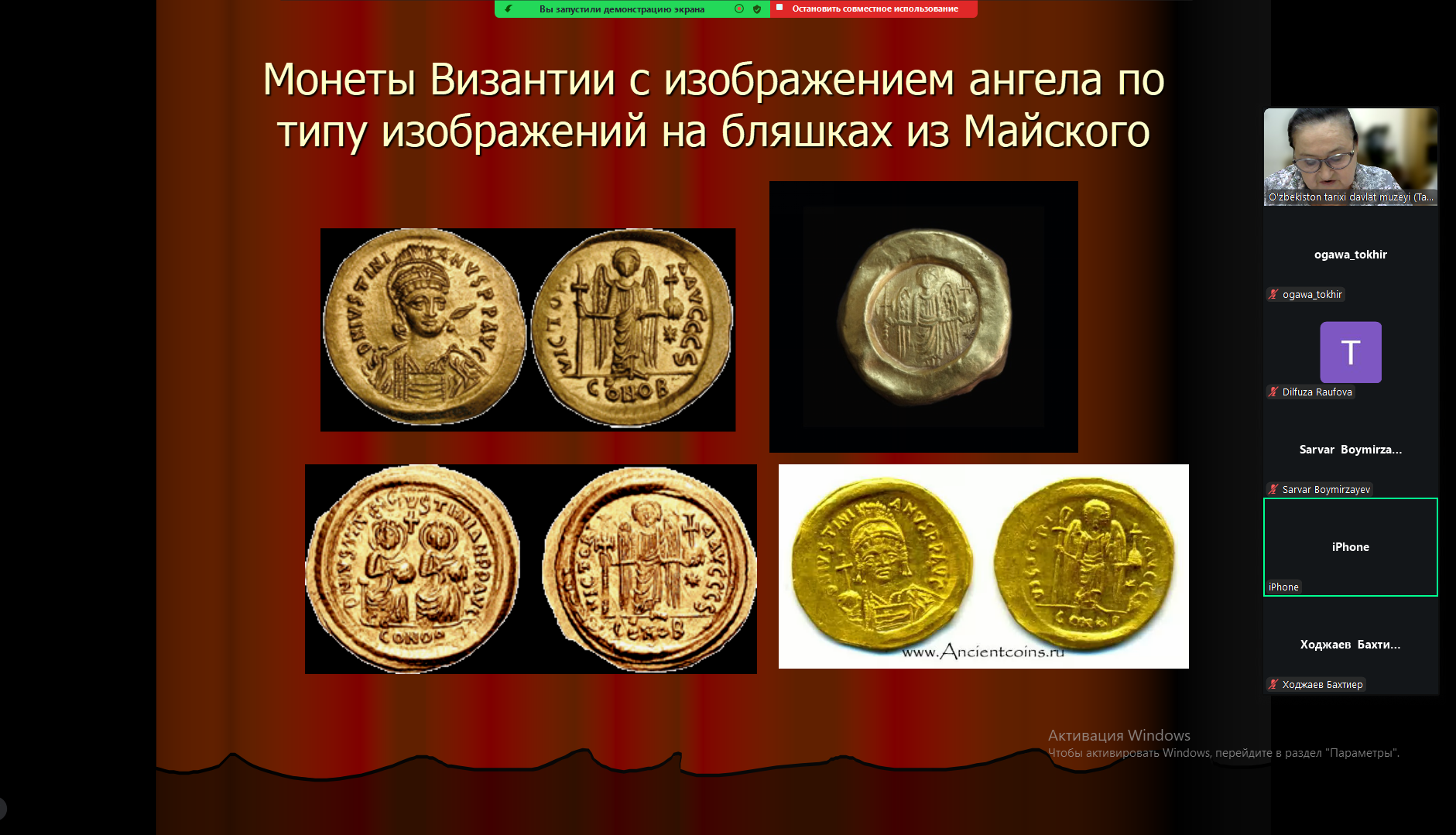
Today, at the initiative of the State Museum of the History of Uzbekistan, an international online seminar dedicated to the topic “Byzantine Coins in Chach” was held.
The keynote lecture was delivered by Alfiya Adilovna Musakaeva, Senior Researcher at the Historical Studies Department of the State Museum of the History of Uzbekistan, Candidate of Historical Sciences. In her presentation, she provided detailed information on the discovery of Byzantine coins in Chach (modern Tashkent oasis), objects bearing Christian symbolism, and their historical significance.
In particular, the lecture highlighted the results of research conducted since 2010 at the Kanka settlement. Among the most significant finds were a coin of Emperor Arcadius, items from the burial of a Byzantine warrior in the village of Maiskiy, and Byzantine weights, including entire sets. It was also noted that the discovery of bracteates in Tashkent and Surkhandarya points to an ancient burial custom, in which a coin or bracteate was placed in the mouth or hand of the deceased as “payment” for the passage to the afterlife.
Special emphasis was placed on the role of Rome and Byzantium in shaping Chach’s monetary and weight system. As a result of research, the miskal of Chach was determined, which formed the basis of the region’s monetary-weight system. The Kanka settlement, as an economically developed center, became the first location where Chach’s earliest coins were minted. Close trade and economic ties with Byzantium significantly influenced the development of Chach’s coinage. It was also underlined that the discovery of Byzantine coins and Christian symbolic objects demonstrates that Christian beliefs had spread to this region at least as early as the 4th century, while the most intensive trade relations date to the 5th–7th centuries.
The seminar was also attended by scholars from museums in Kawasaki (Japan), Baku (Azerbaijan), and several museums of Russia, as well as representatives of museums of Uzbekistan and the Cultural Heritage Agency of Uzbekistan.
This international academic dialogue provided an important platform for discussing new scientific perspectives, exchanging experiences, and strengthening cooperation between Uzbek and foreign researchers.